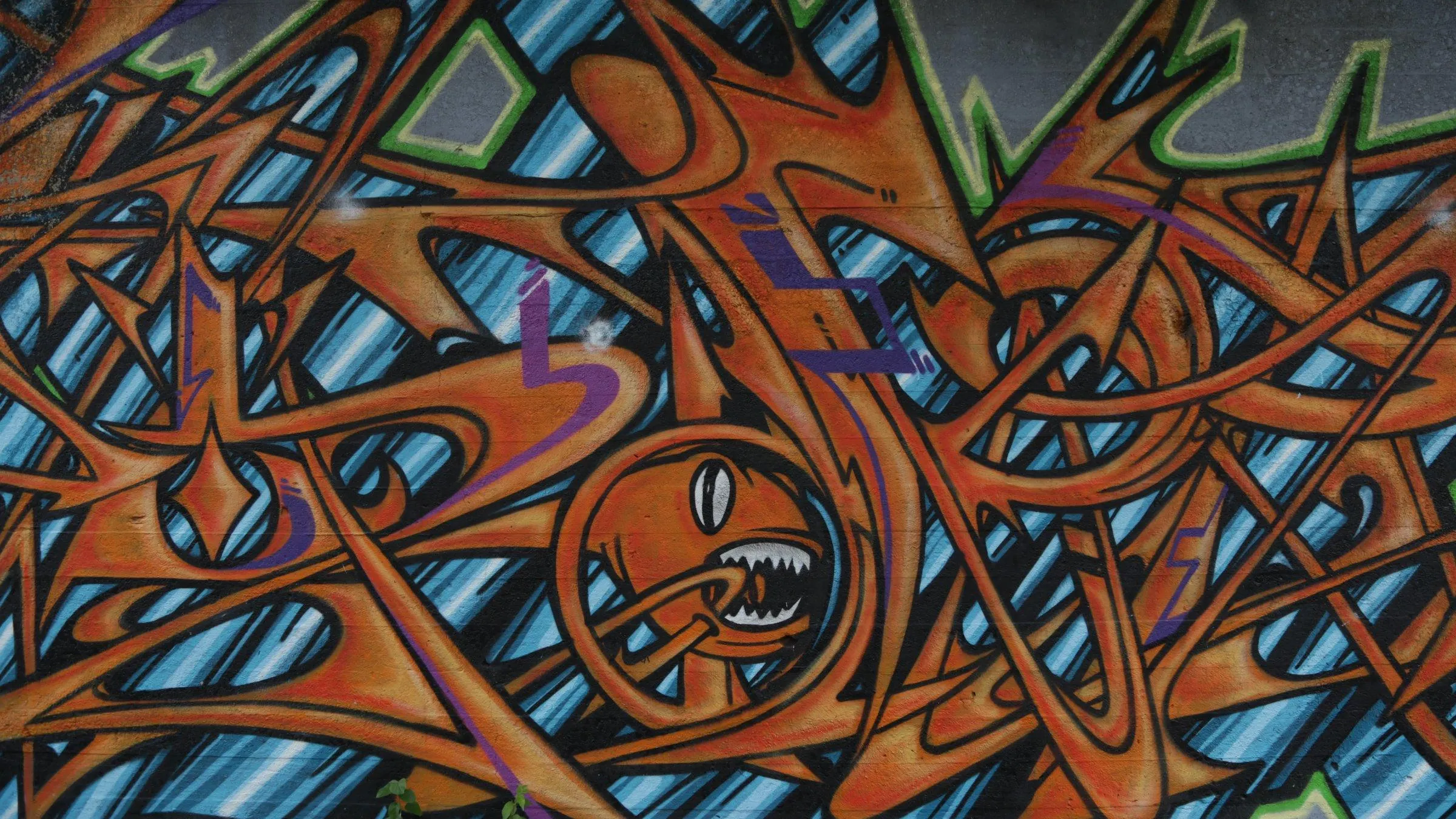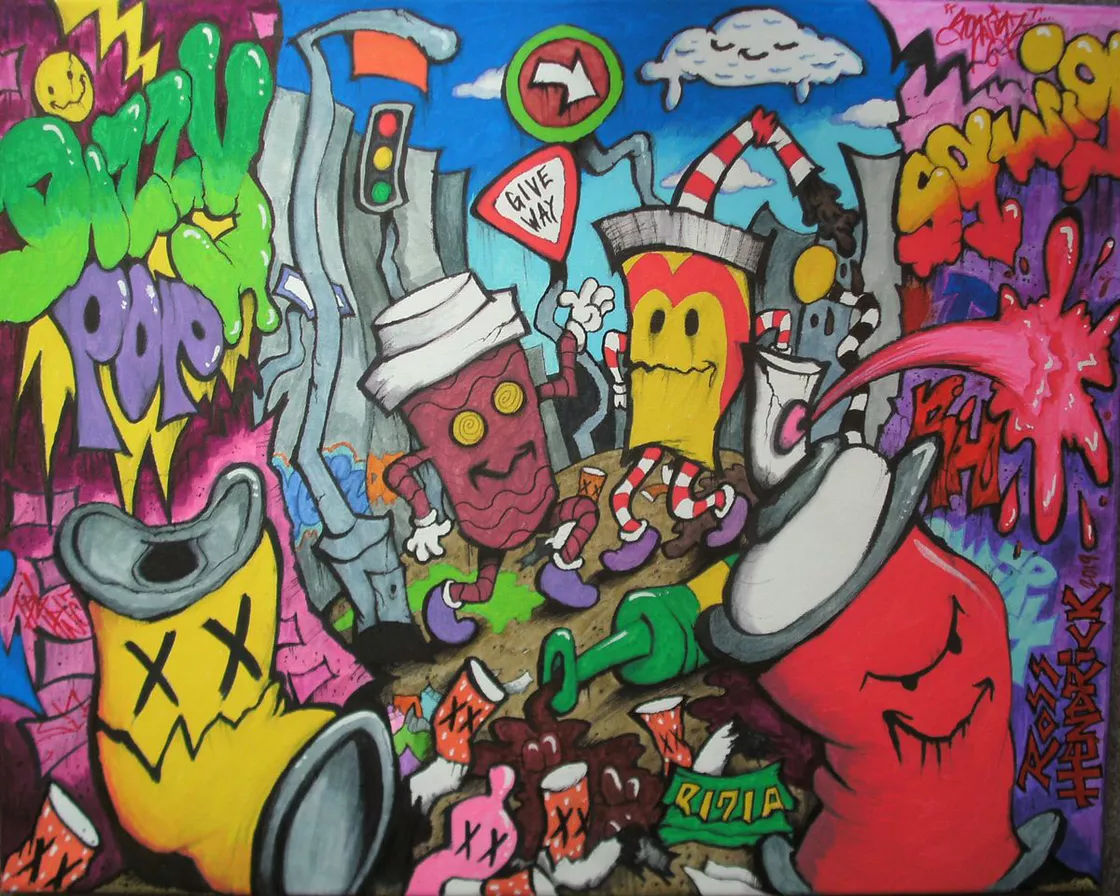What happens when we are ‘afraid of newness’? What are the dynamics of this particular sort of situation? What consequences can we expect from it? What sort of process will ensue as a result of the situation where we are afraid of newness, afraid of change? The answer to these questions ought to be very well known to us given that this is the situation of just about every human being you are ever going to meet! We’re all afraid of newness. We’re all neophobic – inasmuch as we are identified with a mind-created notion of who or what we are, we cannot help being afraid of anything that is genuinely new. ‘Being afraid of newness’ is the key attitude that creates the self – neophobia is what makes the self be the self. There’s no such thing as a ‘non-neophobic self’, in other words!
‘Newness’ – if we may continue to use that word – means the ‘not-self’. Wherever there is newness, there is no self! And conversely, wherever the self is there is no newness. In order to appreciate this clearly all we need to do is to is to consider what conditions are required so that the self may exist, what conditions are required in order that the self might continue to exist, day-in, day-out, as the super-reliable permanent fixture we all take it to be. There is a specific mechanism here that allows this, and that is
The mechanism which is where everything that happens is only acknowledged as having happened as a result of comparing the information that relates to it to a static or abstract framework, whilst at the same time remaining perfectly unconscious of the fact that this comparing is going on.
The self is created via this comparison-making mechanism, as a direct result of it, and so if the mechanism in question were to be interrupted then the self would immediately cease to exist. What we’re saying here in essence is that the self comes about as a result of us living wholly within a framework that we do not acknowledge as being there. We live out the course of our lives in a box that we do not acknowledge as being a box! There are in other words arbitrary boundaries to our experience and we don’t have any awareness of them – for us these boundaries are ‘the limit of what reality is or ever could be’. As far as we are concerned, there’s nothing beyond them. We live within our self-made horizons, and we never see these horizons for what they are or have any curiosity about them. There is a cut-off point to our interest – we’re ‘one-sided’, as Jung would say. We engross ourselves on a full-time basis with all the stuff that is going on inside the box so that we no longer have any left-over awareness to be wondering if there might be anything else other than the game we’re so busy playing. We become ‘concrete’ in other words, and ‘being concrete’ is just another way of saying that we’re afraid of anything new…
The result of living wholly within ‘a framework of reference that we do not acknowledge as being there’ is of course that we don’t ever deal with raw data. Raw data is unprocessed information, information that hasn’t been checked and validated by the framework. It’s just come in off the street, in other words, with no formal vetting having taken place. No vetting at all has taken place! As we’ve said, we never have any contact with raw data – we have been protected from it for so long that we have forgotten that it exists. As adults, we never knew it and so we never miss it. Processed information – information that has come to us via the appropriate channels – has replaced the raw, unprocessed stuff. The generic copy has taken the place of the original, and so we don’t know the difference. Processed / pre-packaged information – we might say – is information that perfectly reflects the biases that make up the processing apparatus: if the FW says that it exists then it exists and if the FW doesn’t say that it exists then we won’t say any more about. In fact it’s not just that we won’t say any more about it, we won’t ever mention it in the first place!
The FW tells us whether something is there or not there, whether it is ‘a real thing’ or ‘not a real thing’. This is like holding up apples and pears up to a plastic template to see if they measure up or not to what the accepted standard says apples and pears should look like. If they measure up then they can go on the supermarket shelf and we can buy them, and if they don’t then we don’t hear any more about them – in this case the substandard fruit are discretely disposed of and we the customers never get to clap eyes on them. The thing about this invisible ‘processing mechanism’ of course is that we never get to see anything new. We only ever get to see the same old thing over and over again – we won’t ever see anything different because the whole point of the template is to prevent anything ‘different’ getting past the vetting procedure!
The job of the template is to only allow stuff past if it measures up exactly and this necessarily means that all we ever see is the copy of that template, repeated over and over again. The same thing is true for the mental framework of reference that we use (without knowing that we are doing so) to determine what constitutes reality for us – the whole point of the FW is to make sure that we never encounter anything new. There will never be such a thing as ‘the new’ just as long as the FW is doing its job – the mental template is the mould and nothing ever comes out of the mould apart from the generic copy…
Everything that comes out of the FW is old. Everything that comes out of the FW is a generic copy and generic copies – by their very nature – are always old! We’re just like the customers in the supermarket who think that fruit and vegetables just naturally are the way we find them on the shelves – we think that they grow like this. It doesn’t ever dawn on us that in the real world fruit and vegetables come in all sorts of shapes and sizes. We therefore live in a world of regularity and uniformity because the supermarkets have decided for us that we will only buy the regular and the uniform, that we’re only interested in the regular and the uniform. We haven’t been given any choice in the matter! Similarly, therefore, when we live life totally via the FW which is the thinking mind, ‘the old’ is all we know and because the old is all we know we don’t realize it to be the old. ‘The old has become the new new’, so to speak. The ‘genuine new’ has been completely suppressed and so we end up in the strange situation where the old has substituted itself for the old and has thus become the effective analogue of the new…
The other way of putting this is to say that the generic is all we know, and that for this reason the generic has now become ‘the non-generic’. This is a deception that works very well indeed – all that is needed in order for the switch to work 100% effectively is that the non-generic, the unique, must be prevented at all costs from ever showing its face. If it did show its face then the deception would be instantly exposed; when the truth arrives on the scene then the lie is shown up for what it really is. Because we have been tricked into identifying with the system so that ‘it’s good is our good’ (so ‘it’s advantage is our advantage’) we are on this account committed to defending the lie as vigorously as we can – we are committed to protecting the lie with every last bit of our energy (although we do not of course realize it to be a lie). We’re part of the conspiracy now, however unknowingly; we’re not just dependent upon the generic, the old – we’re dependent upon the illusion that the old is the new, that the generic is the unique. We’re dependent upon a very unreliable thing, therefore! We’re dependent on an illusion, or to be more precise – we’re dependent upon an illusion not being an illusion. We’re dependent upon there not being such a thing as ‘the genuinely new’; we’re dependent upon there not being such a thing as ‘the genuinely unique’. We FEAR the new, in other words, because the new means the end of who we think we are.
There is – in the mechanical world – no greater motivation than the motivation of the self striving to safeguard its own interests. ‘Fear of the new’ is the greatest motivator there is therefore, in the everyday or ‘unconscious’ life. Since ‘newness’ equals ‘no self’ we can see that all of the self’s positive strivings, all of its assertive actions, exist purely for the sake of keeping newness at bay, purely for the sake of ‘moving in the opposite direction to newness’. This is the basic tropism of the self (this is the ‘core tropism’ that makes the self the self) – to move away from the new.
This shouldn’t really come as major news – what do we do when we are feeling insecure other than increase (or try to increase) our sense of being in control of the situation? And what else is ‘control’ other than the attempt to prevent anything ‘new’ (or ‘unexpected’) from happening? We’re super-enthusiastic about control and goals and purposeful behaviour, and ‘control and goals and purposeful behaviour’ are how we keep on reiterating the old, how we keep on reinstating the old. Control means not letting go of the known, not letting go of the familiar, the old. Furthermore, we can say that control, goals, purposefulness etc, all equal ‘the self’ and the self – as we have already pointed out – equals the absence of the new. The assertion of the self is the assertion of the old and the assertion of the old is the denial of the new. How therefore can we possibly say that we are not all about ‘moving away from the new’? How can we possibly claim otherwise?
But the very curious thing about this is that – when it comes down to it – the new is all there is. There’s no such thing as ‘the old’ – that’s just a game we play, a ‘make-believe’ kind of business. The game we’re playing is, as we have already said, that only stuff which has been checked out against the template is real. If the FW says that it is real then it’s real and if the FW doesn’t say that it’s real then we can forget about it. If the FW doesn’t say that it’s real then it never registers with us in the first place – it never comes into the picture and ‘the picture’ is all we know. The FW is the boss therefore – the FW actually comes before reality, it come before reality because it gets to say whether reality is real or not! The rub here of course is that the FW itself isn’t real, that the FW is just something that we made up in order to play the game – the game in question being the game of self.
What the self is always trying to do is to assert the unreal over the real. When the self attempts – as it always does attempt – to move away from the new and migrate deeper and deeper into the safe-and-secure realm of the old it is actually attempting to run away from reality. The self’s essential tropism is away from reality and towards unreality. The ‘best thing ever’ – the self’s ultimate validation – would be the situation where reality has been completely replaced with unreality (i.e. the ultimate goal is the situation where reality or newness is no more). This is the jackpot, this is the big pot of gold that we’re always after…
And yet the sting-in-the-tail here (and what a sting it is!) is that this highly-desired situation simply doesn’t exist. It’s a hallucinatory pot of gold that we’re forever chasing after. The fabulous prize that we’re spending our lives hoping for and striving for is a phantom appearance, a mirage. Needless to say, there’s no such thing as ‘the unreal’!
Perversely, when we’re in the unconscious mode, we’re spending the whole of our lives running away from being whilst seeing this backwards the whole time. We’re running away from being as assiduously as we can whilst firmly believing the whole time – in a perfectly ‘inverted’ way – that we’re running (or trying to run) towards it…






